Interviewing
Before you interview for a position, learn as much about it and the employer as possible. If you found the position through a recruiter, he or she should be able to provide that information for you. If not, conduct research on the internet, visit the library and tap into industry contacts.
Questions to Ask
After you have studied the company, make a list of questions to ask the employer:
- Why is this position available?
- What training programs are available to the person in this position?
- What are your goals for this position?
- What obstacles must be overcome for the person in this position to succeed?
- How will my performance be evaluated?
- What opportunities are there for growth in the next 12 months? Two years? Five years?
- What growth do you anticipate for your organization in the next 12 months?
Questions You May Be Asked
Your recruiter should be able to give you a good idea of the hiring manager’s personality, his or her typical interview demeanour and a few important questions that the employer is likely to ask, such as:
- Tell me about yourself.
Keep your answer in the professional realm only. Review your past positions, education and other strengths. - Why are you interested in this position?
Relate how you feel your qualifications match the job requirements. Also, express your desire to work for the employer. - What are the most significant accomplishments in your career?
Identify recent accomplishments that relate to the position and its requirements. - Describe a situation in which your work was criticised.
Focus on how you resolved the situation and became a better person because of the experience. - What do you know about our organization?
- How would you describe your personality?
- How do you perform under pressure?
- What have you done to improve yourself over the past year?
- What did you like least about your last position?
- Are you leaving (did you leave) your present (last) company?
- What is your ideal working environment?
- How would your colleagues describe you?
- What do you think of your boss?
- Have you ever fired anyone?
- What was the situation and how did you handle it?
- Are you creative?
- What are your goals in your career?
- Where do you see yourself in two years?
- Why should we hire you?
- What kind of salary are you looking for?
- What other types of jobs/companies are you considering?
Closing the Interview
Job candidates often second-guess themselves after interviews. By asking good questions and closing strongly, you can reduce post-interview doubts. If you feel that the interview went well and you want to take the next step, express your interest to the interviewer. Try an approach like the following: “After learning more about your company, the position and responsibilities, I believe that I have the qualities you are looking for. Are there any issues or concerns that would lead you to believe otherwise?”
This is an effective closing question because it opens the door for the hiring manager to be honest with you about his or her feelings. If concerns do exist, you may be able to create an opportunity to overcome them, and have one final chance to dispel the concerns, sell your strengths and end the interview on a positive note.
A few things to remember during the closing process:
- Make sure that you have thoroughly answered these questions during the interview: “Why are you interested in our company?” and “What can you offer?”
- Express appreciation for the interviewer’s time and consideration.
- Don’t expect an offer to be made or a specific salary to be discussed during your first interview.
Follow Up
After your interview, follow-up is critical. When you get in your car, immediately write down key issues uncovered in the interview. Think of the qualifications the employer is looking for and match your strengths to them. A “thank you” letter or email should be written no later than 24 hours after the interview. Be sure to call your recruiter, within the agreed upon time line, to discuss your interview and your next steps.
Adapting to Your Needs
Whether you are seeking specific talent or unique opportunities, we provide an established level of service that is receptive and responsive to your needs. Connect with us to learn how we can best serve you.
